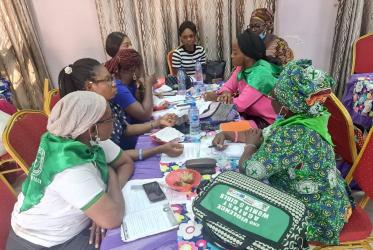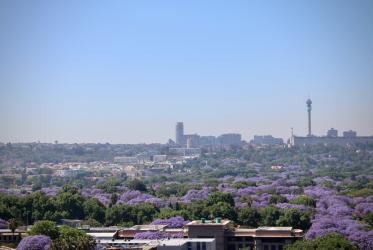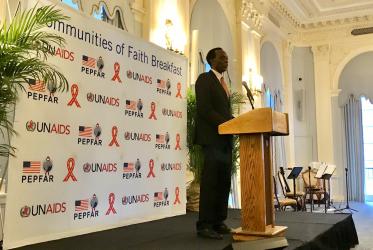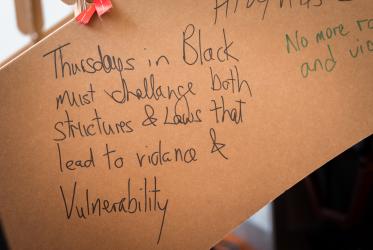Displaying 1 - 20 of 24
Nigerian churches train women and girls on human rights
20 December 2021
WCC sends letters of concern over violence and conflict in Ethiopia
04 February 2021
South Africans draw hope despite recurring challenges
16 December 2019
Churches in southern Africa stand against violence, xenophobia
10 October 2019
When you strike the women, you strike a rock
18 September 2019
Dr Cecile De Sweemer, the doer of God
30 November 2018
G7 must address famine
22 May 2017
In Ghana, women bring open minds, honest words
05 July 2016














